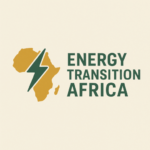At every global climate conference, the message is always clear: the world must end fossil fuel use.
The speeches are moving and fast. Scientists warn of the dangers of coal, oil, and gas, and activists hold banners demanding urgent change. While Diplomats pledge to move faster.
The phrase “fossil fuel phaseout” is now common in headlines and summit declarations.
But when you sit down and read Africa’s official climate plans, the message shifts. Many governments across the continent have pledged to fight climate change. They speak of solar power, wind farms, electric buses, and green cities.
Yet their Nationally Determined Contributions (NDCs) tell another story. Most African NDCs barely mention fossil fuel phaseout. Some avoid it completely, while many embrace gas as the future.
Few Commitments, Big Risks
A review by climate research groups E3G and Zero Carbon Analytics found that fewer than half of African countries addressed coal phaseout in their NDCs.
Almost none mentioned plans to cut oil and gas. Instead, many countries now promote natural gas as a “transition fuel.” Most often, the argument is that gas will provide electricity to millions of people, drive industries and reduce reliance on dirtier fuels such as coal and diesel.
This strategy sounds reasonable on paper, but there are risks. Gas infrastructure is expensive and slow to build. Pipelines, processing plants, and export terminals take years to complete. And once built, these projects can lock countries into fossil fuel use for decades.
Africa could find itself investing billions into infrastructure that the world soon rejects.
Energy Access Matters
Why do African governments avoid strong fossil fuel commitments?
The answer lies in energy poverty. About 600 million people in Sub-Saharan Africa live without electricity. In many countries, energy shortages are frequent. Power cuts can last for hours or even days.
Leaders argue that Africa cannot ignore gas. At the Enlit Africa 2025 conference in Cape Town, ministers made their case.
They said Africa cannot afford to choose between fossil fuels and renewables. And stressed the need for practical solutions to keep homes and industries running.
Gas, according to them, is one such solution. Yet this position reflects a wider struggle. Africa’s leaders must navigate the difficult space between climate ambition and economic reality.
Global Pressure, Local Priorities
For years, we’ve had these tensions where global climate campaigns demand rapid fossil fuel phaseouts, and many African leaders say the focus should be different.
They argue that the world should listen more closely to Africa’s priorities. And in most of these countries, the key concern is not reaching net zero by 2050. Rather, it is building reliable energy systems that work today.
Some leaders view gas as a bridge fuel that can support renewable energy. Others see it as an economic engine that could generate jobs and revenue. But the debate isn’t just technical or scientific; it is a political and economic one on the continent.
Communities Missing from Plans
There is another issue. Most African NDCs focus heavily on emissions and international finance. They devote pages to climate risks, adaptation needs, and clean energy targets, but say very little about workers and communities who depend on fossil fuels.
Take Nigeria, for example. Millions of people rely on oil and gas jobs. Entire regions and states depend on the fossil fuel economy. Yet Nigeria’s NDC mentions little about these workers.
South Africa is slightly more advanced. Its Just Energy Transition Partnership includes plans to support coal workers and mining towns. But even here, the details remain limited.
Too many climate plans fail to answer key questions like: What happens to workers in oil-dependent economies? How can governments help coal towns build new industries? Who protects small businesses tied to gas projects?
Without answers to these questions, the energy transition risks leaving people behind.
Where Change Could Start
We acknowledge that we are beginning to see a shift in approach in some of these African countries. For example, South Africa’s partnership with international donors includes billions in funding for renewable energy, transmission upgrades, and workers’ training. Nigeria has started plans for how to ensure a fair energy transition.
But much more needs to be done. Most NDCs still rely on outdated language from years ago. They often avoid concrete commitments on fossil fuel phaseout, and rarely mention job creation or social protections. And this gap leaves a major hole in Africa’s climate plans.
Moving Beyond Words
Africa faces a tough balancing act. The continent needs much more power to drive development.
At the same time, it faces severe climate risks: Floods, droughts, and heatwaves are already devastating communities.
This dual challenge requires clear and honest plans. African governments must stop hiding behind vague statements. They need to spell out how they will balance gas investments with renewable energy goals and explain how they will protect workers during the transition.
There is also a need for transparency about the trade-offs they face; otherwise, the gap between promises and reality will grow.
Global climate talks will continue to push for fossil fuel phaseouts. But without real plans that address Africa’s unique challenges, progress will stall.
A Call for Realism and Action
At Energy Transition Africa, we know these debates well. On the ground, we see the tension between climate ambition and energy poverty daily.
We believe Africa can build a clean, just, and reliable energy future. But that future requires honesty; an acknowledgement that gas alone will not solve Africa’s problems. Governments must invest in renewables, grids, and energy efficiency.
Africa’s leaders face difficult choices. But clear, community-focused climate plans are the first step toward an energy transition that works for everyone.
Without them, millions will continue waiting in the dark.
Find more on this topic here

